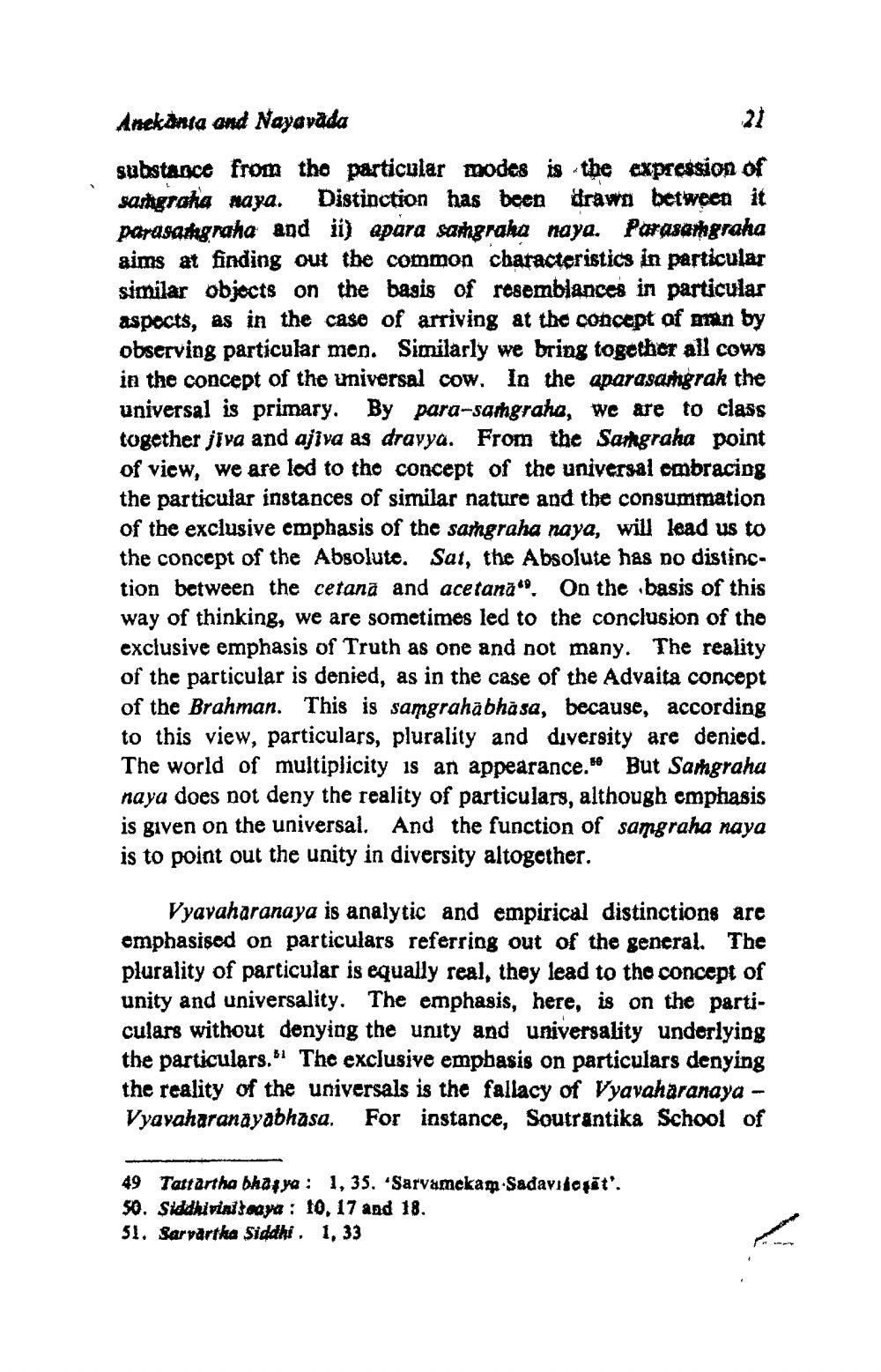________________
2
Anek Ania and Nayavada substance from the particular modes is the expression of sastgraha maya. Distinction has been drawn between it parasangraha and ii) apara sangraha naya. Parasangraha aims at finding out the common characteristics in particular similar objects on the basis of resemblances in particular aspects, as in the case of arriving at the concept of aran by observing particular men. Similarly we bring together all cows in the concept of the universal cow. In the aparasangrak the universal is primary. By para-sathgraha, we are to class together jiva and ajiva as dravya. From the Sangraha point of view, we are led to the concept of the universal embracing the particular instances of similar nature and the consummation of the exclusive emphasis of the sangraha naya, will lead us to the concept of the Absolute. Sat, the Absolute has no distinction between the cetana and acetana". On the basis of this way of thinking, we are sometimes led to the conclusion of the exclusive emphasis of Truth as one and not many. The reality of the particular is denied, as in the case of the Advaita concept of the Brahman. This is samgrahabhasa, because, according to this view, particulars, plurality and diversity are denied. The world of multiplicity is an appearance. But Samgraha naya does not deny the reality of particulars, although emphasis is given on the universal. And the function of samgraha naya is to point out the unity in diversity altogether.
Vyavaharanaya is analytic and empirical distinctions are emphasised on particulars referring out of the general. The plurality of particular is equally real, they lead to the concept of unity and universality. The emphasis, here, is on the particulars without denyiog the unity and universality underlying the particulars. The exclusive emphasis on particulars denying the reality of the universals is the fallacy of Vyavaharanaya - Vyavaharanayabhasa. For instance, Soutrantika School of
49 Tattartha bhaiya : 1, 35. Sarvamckan-Sadavilerit'. 50. Siddhivintteaya : 10, 17 and 18. 51. Sarvartka Siddhi, 1.33




